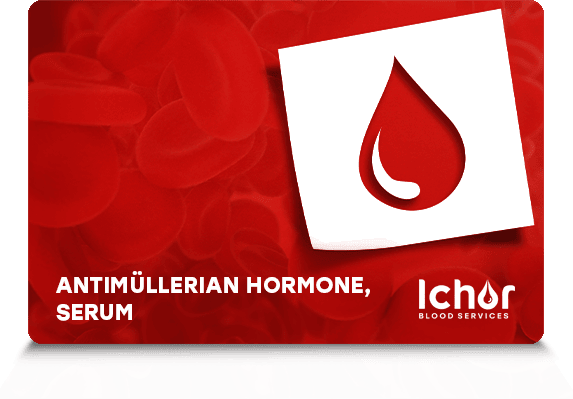
What Is It?
AMH1, or Antimullerian Hormone, S is a simple blood test used to measure levels of Antimullerian hormone (AMH) in individuals. AMH is made in the reproductive tissues of females and males and has an important role in the development of reproductive organs. In females, AMH is used to determine ovarian reserves and to assess ovarian response for infertility evaluation and to inform reproductive therapy treatments. It can also be used as a marker for polycystic ovary syndrome (PCOS). In males, AMH is used for evaluation of male infertility and sexual development disorders.
Who Is It For?
AMH1 testing is useful for:
- Evaluating ovarian status including ovarian reserves and ovarian responsiveness
- An assessment tool for male and female infertility
- Evaluating menopausal status including premature ovarian failure
- Aiding in the determination of the cause of amenorrhea (lack of menstruation) for females who haven’t started menstruating by the age of 15 or who have missed several periods
- Evaluating infants with ambiguous genitalia or other indicators of intersex conditions
- Evaluating testicular function
- Monitoring patients with granulosa cell tumors that are antimullerian hormone-secreting
Why Is It Important?
AMH is a tool of assessment for a woman’s current ovarian reserve. Low AMH levels can indicate diminished ovarian reserves (DOR), but not the quality of follicles. AMH concentrations can be used to predict response to in vitro fertilization and other assisted reproductive therapies. These values can help women understand their fertility status, assess the effectiveness of reproductive therapies, and make the most informed decision about reproductive care.
It can be predictive of the timeline for the onset of menopause. Your doctor may also look to AMH1 as a useful tool in evaluating for PCOS or assessing the effectiveness of treatment for ovarian cancer.
AMH is useful in the diagnosis of ambiguous genitalia, delayed puberty, and infertility in males.
